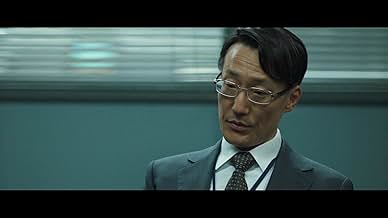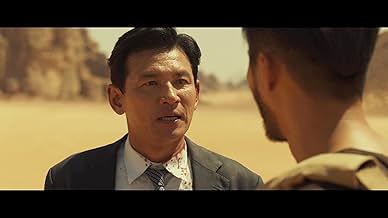"The Point Men" unfolds as a riveting and expertly crafted hostage drama, casting an unflinching spotlight on the harrowing realities of a South Korean hostage crisis. In the grand tradition of South Korean cinema, renowned for its adeptness at translating real-life incidents into compelling, no-nonsense narratives, this film stands as a testament to the nation's prowess in storytelling. In a narrative parallel to its predecessor, "Escape from Mogadishu," the film seamlessly weaves urgency into its fabric, ensuring that the audience is gripped by the relentless pace of unfolding events.
A noteworthy strength of "The Point Men" lies in its screenplay, a captivating and realistic tapestry that avoids the pitfalls of forced storytelling. The film navigates the treacherous terrain of a hostage crisis with finesse, never succumbing to contrived plot devices. The infusion of humor, skillfully executed by Kang Ki-young, serves as an additional layer of authenticity, seamlessly integrating moments of levity amidst the gravity of the situation. While the absence of elaborate action set pieces may be perceived as a drawback by some, it is a conscious choice that bolsters the plausibility of the narrative. The filmmakers prioritize the integrity of the premise over gratuitous spectacle, a commendable decision that enhances the film's credibility.
In the realm of performances, "The Point Men" benefits immensely from the formidable talents of Hyun Bin and Hwang Jung-min. Although newcomers to my cinematic purview, their prowess as actors is immediately evident. Their portrayals are marked by authenticity and naturalism, adding a layer of gravitas to the unfolding drama. The chemistry between the leads enhances the film's emotional resonance, making their characters' struggles palpable to the audience. This synergy between compelling performances and a well-crafted narrative elevates the film beyond the trappings of a conventional hostage drama.
As a thrilling exploration of a genuine hostage crisis, "The Point Men" captivates audiences with its honesty and unwavering commitment to true storytelling. Those anticipating elaborate action sequences may find themselves disappointed, as the film deliberately eschews such embellishments in favor of a more grounded depiction of events. However, for aficionados of sincere and gripping narratives, this film emerges as a compelling addition to the genre. It's a testament to South Korean cinema's ability to delve into complex, real-world scenarios, presenting them with authenticity and an engrossing narrative that resonates long after the credits roll.





























